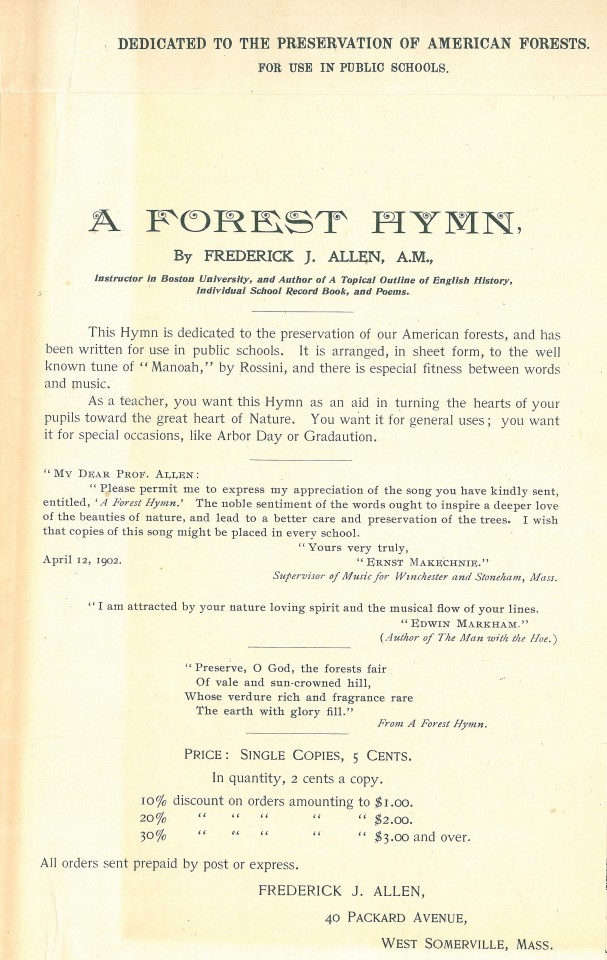Spreading the Message
From 1901–1911, unfettered logging proceeded apace and fires followed. In 1903, 80,000 acres burned. In 1904, 200,000 acres burned. In 1907, 35,000 acres burned. Each year, smaller fires burned additional acreage. During the same time, the movement to create eastern national forests spread nationwide.
On January 10, 1903, the New Hampshire legislature approved the creation of a federal White Mountain reserve “by purchase, gift, or condemnation according to law.” It also approved the expenditure of $5,000 to survey the White Mountains for such a purpose. In national publications, Ayres recognized that the movement was “an attempt to preserve what remain[ed] of the forest cover” and reiterated that the state alone could not do that. “State ownership … cannot be brought about except gradually and meantime the virgin forests are rapidly disappearing.”
Ayres addressed Congress for the first time in 1902. He gained the support of various national groups: from the American Pulp and Paper Association to the American Forestry Association. He wrote articles in the Concord, Manchester, Boston, and
New York newspapers, urging readers to contact their congressmen to protect both the scenic and business elements of the White Mountains. Largely at Ayres’s urging, Senator Jacob H. Gallinger and Representative Frank D. Currier, both of New Hampshire, introduced the first White Mountain forest “reservation” bill into Congress in December 1903. Over the next several years, it moved slowly through various committees and hearings.
“A Forest Hymn”
by Frederick J. Allen.The Hymn is dedicated to the preservation of our American forests,
and has been written for use in public schools…As a teacher, you want this Hymn as an aid in turning the hearts of your pupils toward the great heart of Nature.”
“Preserve, O God, the forests fair
Of vale and sun-crowned hill,
Whose verdure rich
and fragrance rare
The earth with glory fill.
- The Weeks Act of 1911
- Tourists & Travelers
- Word Gets Out
- The Farmers Left; The Hotels Came
- Private Hands
- Arrival of the Loggers
- Need for Management
- Departure of the Forests
- Logging Photos
- The Tourists Continue to Arrive
- Educated Tramps and ‘Culchowed’ Pedestrians
- Tourist Photos
- The Path of Destruction
- AMC and Hiking Photos
- Suffering the Consequences
- Scarred Landscapes
- Proposals for Public Purchase
- Advocating for the Forests
- A Spokesman for the Trees
- Spreading the Message
- Progress Toward the Weeks Act
- Yet the Destruction Continued
- The Final Push
- Ralph Waldo Emerson, “Nature”
- Return to Exhibition Info



